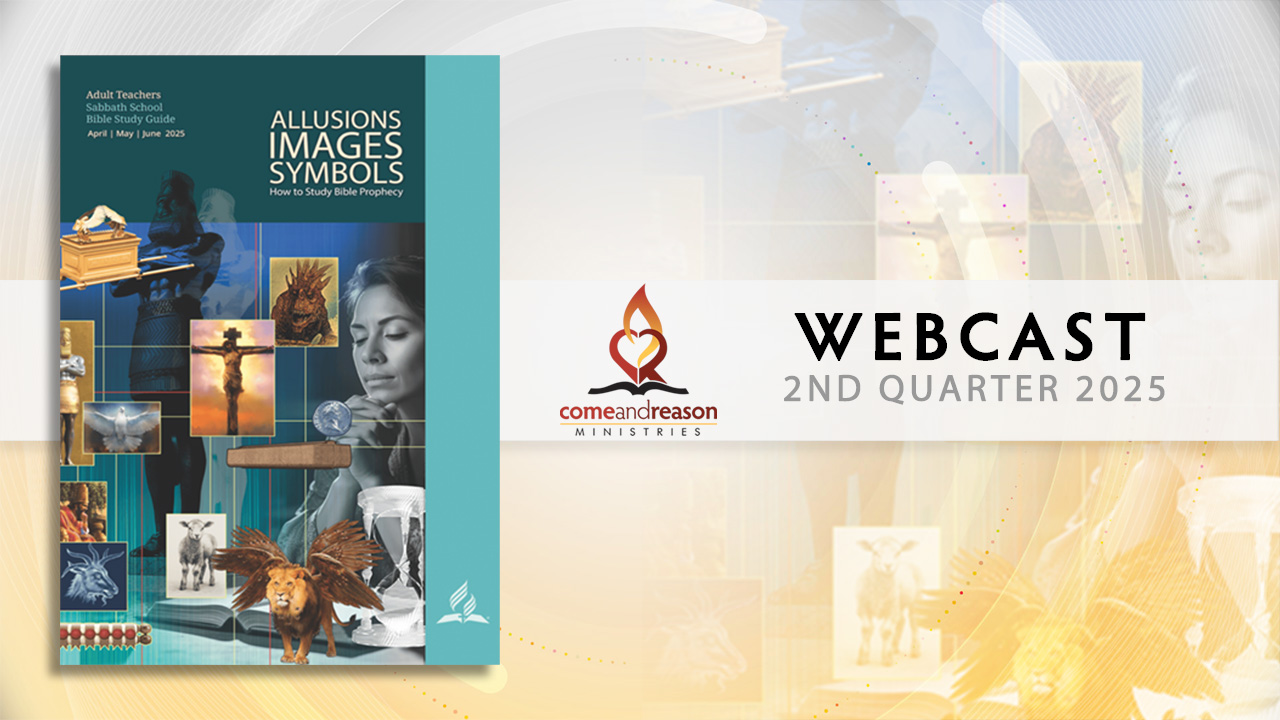Recently our local church has been blessed by a series of sermons entitled “Prism: Metaphors of the Atonement.” Four different speakers presented, over a five week period, Adoption, Reconciliation, Ransom, and Romans.
As I listened to each of these interesting presentations I was stimulated to study and reflect and dig deeper. Several questions came to my mind.
Why all the different metaphors? Are there multiple different realities? Or is there one reality and the metaphors are attempts to reach human beings, who come from all different walks, experiences, perspectives, backgrounds, and lead them from where they are to the one true reality?
Scripture tells us that at the end of time all things will come together under One head, Jesus Christ. The Old Testament Sanctuary service culminated each year with a ceremony of “Oneness” followed by fellowshipping together with God.
Could the various metaphors be designed ,not to teach multiple different realities, but to bring people from multiple different backgrounds to the one reality of unity with Jesus Christ and God the Father? And what would the danger be in failing to comprehend the reality behind the metaphor and instead taking the metaphor concretely as if that was reality?
A prism takes white light and breaks it into its rainbow colors. And as we appreciate the beauty of the rainbow, do we gain some deeper knowledge and appreciate of the white light from whence the rainbow originated? Could God have given the multiple metaphors to lead humanity back to a saving knowledge Him? Does He expect us to integrate the metaphors in order to see the one reality of His nature and character? Are we to stop quibbling over which color of the rainbow is right and instead see the pure White Light that integrating all the metaphors bring?
If a person presents “white” light do they deny the colors of the rainbow or are all the colors of the rainbow contained within the “white” light? Would it be honest to say that a person presenting white light doesn’t value, utilize or appreciate the many colors in the rainbow? Or, because white light can only exist when all the colors are simultaneously presented, is it the person presenting white light who has the greatest appreciation for the rainbow?
This is my hearts passion – to see past individual colors, to see past individual metaphors, to bring my heart and mind into the unity with God that Jesus has made possible. This ministry strives, through God’s grace and enabling, to understand the reality behind metaphor and not rest satisfied with metaphorical explanations. We invite you to join us in the eternal journey of never ending growth into the reality of who God is and what He has accomplished through Christ.
With this in mind let’s examine some of the metaphors and see if we can understand the reality behind them.
It is important to remember when interpreting metaphor, illustration, parable and analogy, that generally, the metaphor is designed to teach one central point. If we are overly concrete we can draw conclusions which are erroneous and misleading. Or if we try to make every element in the illustration applicable in a literal way we will draw the wrong conclusion. A great example is the parable of Lazarus and the rich man. If taken concretely, literally, one draws a horrible picture of the universe in which Lazarus is in Abraham’s bosom and can hear the wails and cries of souls suffering in hell. What kind of heaven would such a place be if real? Likewise, with all parable or metaphor we must resist the temptation to be overly literal or concrete in our understanding. Much of the disagreement in Christianity has occurred because of misconstruing Biblical metaphor.
Let’s examine some of the metaphors and see if we can probe closer to the reality they represent:
Adoption – is this Biblical idea a metaphor or reality? Is there a family court in heaven where God goes and fills out paperwork applying for our legal adoption? Or is this a metaphor, an illustration, to connote some element of the reality that we experience when we are reunited with God through Christ?
When is a son/daughter no longer a son/daughter? Is your son only your son as long as he obeys? Is a rebellious son no longer a son? If your son, in wild living developed a terminal illness as a consequence of his destructive choices, would he no longer be a son? If you had to sacrifice, perhaps donate your liver, to save your son and your son repented and was reconciled to you would you have to “adopt” him in order for him to be your son? Would such a father have to go to family court and “legally” adopt his son in order for his son to be his son?
Then what is the lesson in the “adoption” metaphor if it is not a “legal” process? Could it simply be trying to teach us that when we live in sin our hearts and minds are alienated from God, we are His enemies and as such are disconnected, by our condition, from all the benefits that we would otherwise experience if we were reconciled to Him.
The adoption metaphor teaches reconciliation. It is about our attitude toward God, notice the scripture says we are not given a “spirit of fear” which is the spirit of the world, but we are give the “spirit of adoption.” In other words, in our minds, hearts, attitudes toward God we experience a change from being enemies of God, being at war with God, to being reconciled back to harmony with Him. Our spirits are changed from enemies to sons and daughters of God. This is not a legal process, but an experiential transformation in the heart of the sinner.
Ransom – is this Biblical idea reality or metaphor? The speaker presented several cases in the news recently in which million dollar ransoms were paid to pirates who had seized oil tankers and in exchange for the ransom the tankers were released. Is this an example of Biblical concept of ransom?
The speaker rightly pointed out that the “ransom,” which Christ provided, was not paid to God. He also did not promote the idea that the ransom was paid to Satan. But he never explained what ransom means or to whom it was paid. Does God require some “ransom” payment to save us from sin? Is it like C.S Lewis’s Narnia when the White Witch held a son of Adam and demanded as a ransom the life of Aslan? What is the reality behind the ransom metaphor?
What does a ransom do? What is its function? A ransom is the “price” necessary to free someone from captivity or bondage. What holds us captive or in bondage?
1. The lies Satan has told about God, that we believe AND
2. Our own carnal natures!
Then what is the “ransom,” what is the price necessary to free us? The truth about God that destroys the lies of Satan. Jesus said, “you will know the truth and the truth WILL SET YOU FREE!” (John 8:32). Jesus came and brought the truth – the truth about Himself, the Father, the nature and character of sin, and exposed Satan as a liar and fraud. Part of the “ransom price” was for Christ to reveal the truth which destroys all of Satan’s lies.
The rest of the “ransom price” was what Christ achieved in His humanity for us, what we needed but could not procure ourselves! We needed a new nature, a new humanity and Christ came, partook of our humanity and in His own life journey developed a perfect character while destroying the carnal nature which enslaves us. He now offers this perfect character, this perfect nature as a free gift to all who will receive them. We actually become partakers of the divine nature (2Pet 1:4).
The law requires righteousness,–a righteous life, a perfect character; and this man has not to give. He cannot meet the claims of God’s holy law. But Christ, coming to the earth as man, lived a holy life, and developed a perfect character. These He offers as a free gift to all who will receive them. His life stands for the life of men. Thus they have remission of sins that are past, through the forbearance of God. More than this, Christ imbues men with the attributes of God. He builds up the human character after the similitude of the divine character, a goodly fabric of spiritual strength and beauty. Thus the very righteousness of the law is fulfilled in the believer in Christ. God can “be just, and the justifier of him which believeth in Jesus.” Rom. 3:26. {DA 762.2}
To those speakers who presented the various metaphors of the atonement – Thank You! Thank you for your commitment to serving God, for your desire to present Him rightly, for your hard work in preparation and skill in speaking, for motivating us to study, and for respecting each of us enough to allow us the freedom to think, reason and study out these truths and come to our own knowledge of God as revealed in Jesus Christ. We invite you to join us in our journey from the rainbow back to the source of pure light!










 using your credit or debit card (no PayPal account needed, unless you want to set up a monthly, recurring payment).
using your credit or debit card (no PayPal account needed, unless you want to set up a monthly, recurring payment). instead?
instead?